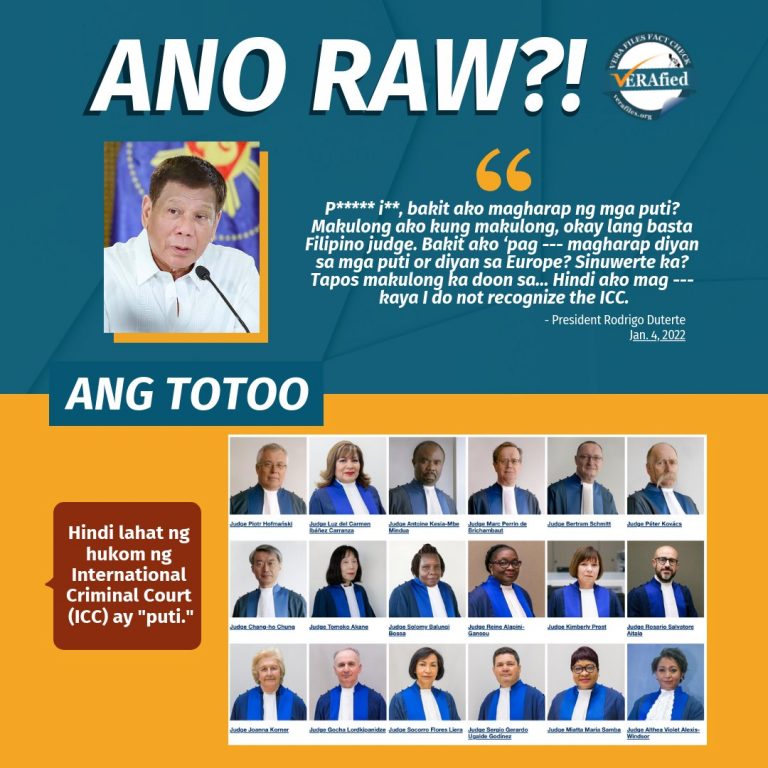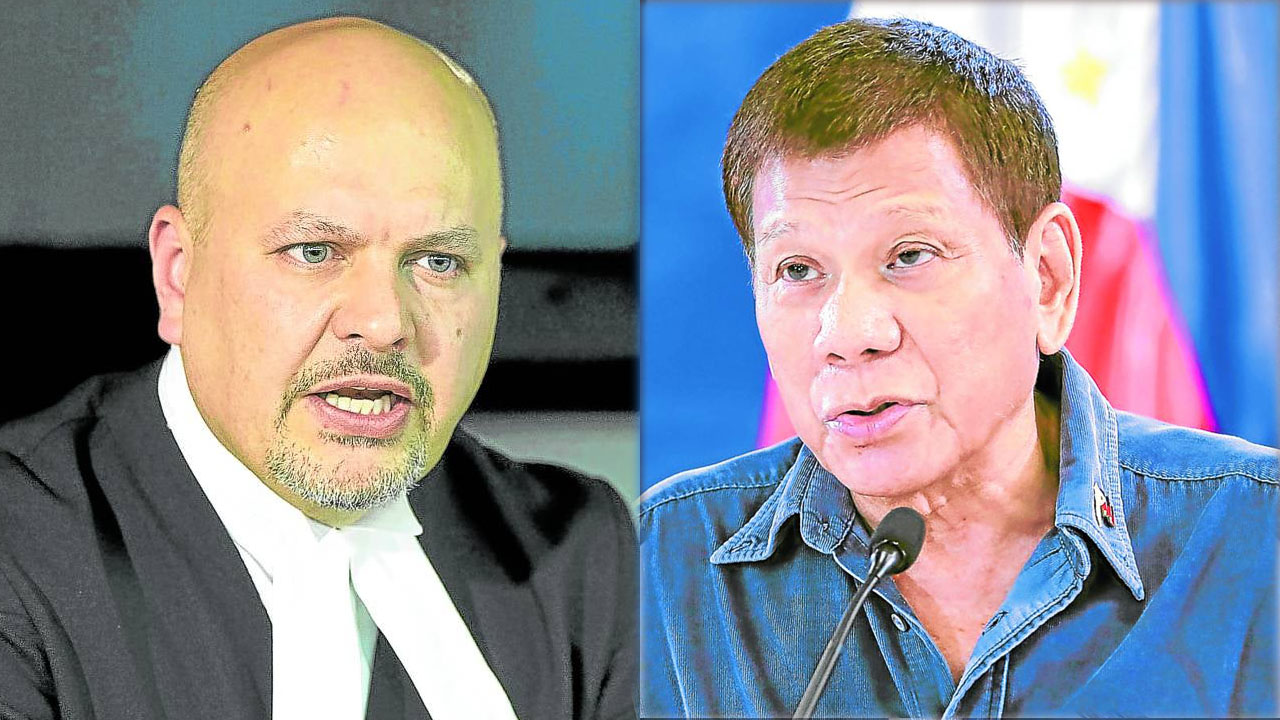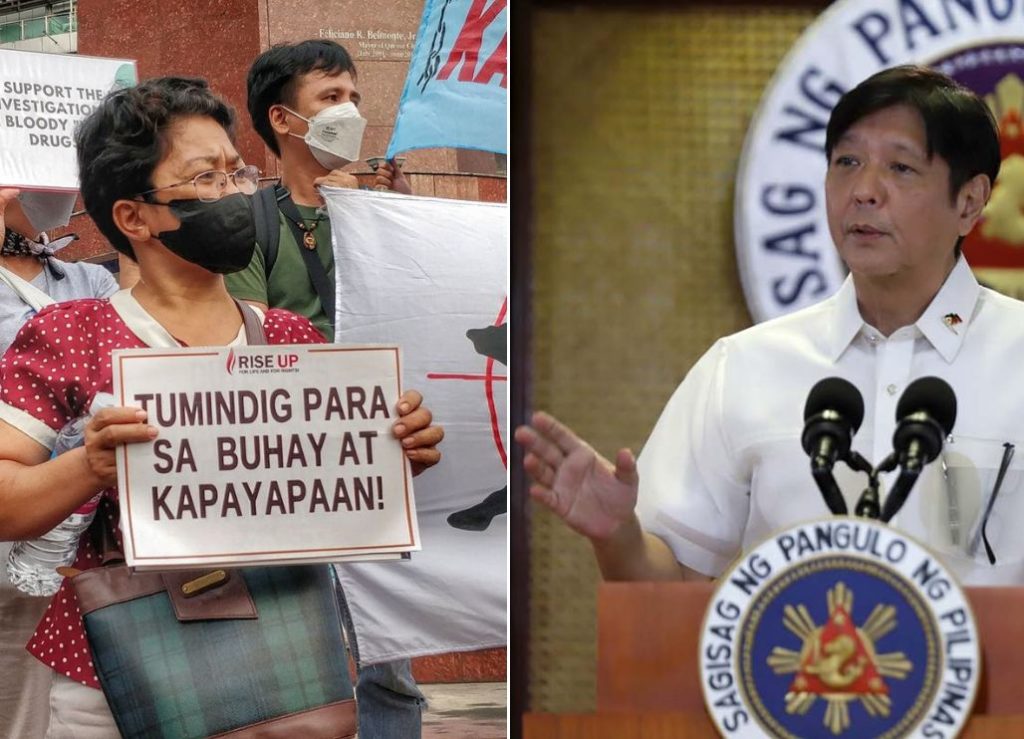When you hear the name Duterte, chances are your mind immediately jumps to the controversial yet powerful figure that has dominated headlines for years. Rodrigo Duterte, the former president of the Philippines, is no stranger to controversy, and his latest legal entanglement with the International Criminal Court (ICC) has sparked a whirlwind of discussions worldwide. But what does this case mean for the ICC, and how does it impact global justice? Let's dive in and unpack the details, shall we?
This isn't just another legal drama; it's a significant moment in international relations. Duterte's case against the ICC highlights the ongoing tension between national sovereignty and global accountability. The Philippines' decision to withdraw from the Rome Statute back in 2018 was a bold statement, but now, as the ICC pushes forward with its investigation, the question remains: Will Duterte's case boost the ICC's fortunes or further tarnish its reputation?
For those unfamiliar with the intricacies of international law, this might seem like a distant issue. However, the implications of this case are far-reaching. It's not just about one man or one country; it's about the future of global justice and whether institutions like the ICC can truly hold world leaders accountable. So, buckle up, because we're about to explore the legal, political, and social dimensions of this case in a way that will leave you informed and intrigued.
Read also:Meet Divaflawless The Rising Star Redefining Beauty Standards
Who Is Rodrigo Duterte?
Biography and Background
Before we dive into the legal complexities, let's take a moment to understand the man at the center of this storm. Rodrigo Roa Duterte, commonly known as Digong, was born on March 28, 1945, in Maasin, Southern Leyte, Philippines. He served as the 16th president of the Philippines from 2016 to 2022, leaving behind a legacy that is as polarizing as it is impactful.
Here’s a quick snapshot of his life:
| Full Name | Rodrigo Roa Duterte |
|---|---|
| Birthdate | March 28, 1945 |
| Place of Birth | Maasin, Southern Leyte, Philippines |
| Political Affiliation | PDP–Laban |
| Presidency Term | June 30, 2016 – June 30, 2022 |
Duterte's rise to power was marked by his tough-on-crime stance, which resonated with many Filipinos frustrated by rising crime rates. However, his methods, particularly the so-called "war on drugs," have drawn widespread criticism from human rights groups and international organizations.
The War on Drugs: A Controversial Legacy
What Happened?
One of the most controversial aspects of Duterte's presidency was his aggressive campaign against illegal drugs. Dubbed the "war on drugs," this initiative led to thousands of deaths, many of which were extrajudicial killings. Critics argue that these deaths were often carried out without due process, while supporters claim they were necessary to restore law and order.
According to Human Rights Watch, at least 27,000 people have died since the start of Duterte's war on drugs in 2016. These numbers are staggering and have drawn the attention of international bodies, including the ICC, which views these deaths as potential crimes against humanity.
- Thousands of deaths linked to the war on drugs
- Extrajudicial killings as a primary concern
- Global outcry over human rights violations
But here's the kicker: Duterte has always maintained that his policies were aimed at protecting the Filipino people, even if it meant taking drastic measures. This defense, however, hasn't swayed the ICC, which has now opened a formal investigation into these allegations.
Read also:Skysetx Com Your Ultimate Guide To The World Of Highquality Streaming
ICC's Role in Global Justice
Understanding the ICC
The International Criminal Court, established in 2002, is the world's first permanent tribunal designed to prosecute individuals for crimes against humanity, war crimes, and genocide. Its mission is noble: to ensure that no one is above the law, regardless of their position or power. But the ICC has faced its fair share of challenges, including accusations of bias and inefficiency.
Duterte's case is a test of the ICC's authority and credibility. If the court can successfully investigate and prosecute him, it could set a precedent for holding world leaders accountable for their actions. However, if the case falters, it could further undermine the ICC's reputation as a credible institution.
Philippines' Withdrawal from the Rome Statute
Why Did the Philippines Leave?
In 2018, the Philippines officially withdrew from the Rome Statute, the treaty that established the ICC. This move was seen as a direct response to the ICC's preliminary examination of Duterte's war on drugs. Duterte argued that the ICC had no jurisdiction over Philippine affairs and accused it of interfering with national sovereignty.
But here's the twist: the ICC has stated that it can still investigate crimes committed during the time the Philippines was a member state. This legal loophole means that Duterte's actions from 2016 to 2018 are still within the court's purview, despite the country's withdrawal.
The Legal Battle: Duterte vs. ICC
What's at Stake?
The legal battle between Duterte and the ICC is a complex web of international law, political maneuvering, and human rights advocacy. For Duterte, this is a fight for his legacy and his place in history. For the ICC, it's an opportunity to prove its relevance in an increasingly multipolar world.
Key points to consider:
- The ICC's investigation focuses on alleged crimes against humanity
- Duterte's defense rests on claims of national sovereignty
- Global implications for other nations facing similar legal challenges
As the legal proceedings unfold, the world watches with bated breath. Will Duterte emerge victorious, or will the ICC succeed in bringing him to justice? Only time will tell.
Global Reactions and Public Opinion
How the World Responds
The Duterte-ICC case has sparked a wide range of reactions from governments, human rights organizations, and the general public. Some see this as a step forward for global justice, while others view it as an infringement on national sovereignty.
Here's a breakdown of the global response:
- Support from human rights groups advocating for accountability
- Criticism from allies of Duterte who see this as a political attack
- Mixed reactions from the Filipino public, divided along political lines
Public opinion plays a crucial role in shaping the narrative around this case. For many Filipinos, Duterte remains a beloved leader who tackled corruption and crime. For others, he is a symbol of authoritarianism and human rights abuses.
Implications for the Future of Global Justice
What Does This Mean for the ICC?
The outcome of Duterte's case will have lasting implications for the ICC and the broader concept of global justice. Success could bolster the court's reputation and encourage other nations to cooperate with its investigations. Failure, on the other hand, could lead to further skepticism about the ICC's ability to hold powerful individuals accountable.
Key takeaways:
- Potential impact on the ICC's credibility and influence
- Precedent-setting for future cases involving world leaders
- Broader discussions about the balance between national sovereignty and international law
As the world becomes more interconnected, the need for effective global institutions like the ICC becomes increasingly apparent. But achieving this balance requires careful consideration of legal, political, and social factors.
Conclusion: Where Do We Go From Here?
In conclusion, Duterte's case against the ICC is more than just a legal battle; it's a defining moment for global justice. The outcome will shape the future of international law and the role of institutions like the ICC in holding world leaders accountable.
So, what can you do? First, stay informed. Follow the developments in this case and engage in discussions about its implications. Second, consider sharing this article with others to spread awareness. Finally, if you're passionate about global justice, explore ways to get involved in advocacy and activism.
Remember, the fight for justice is a collective effort, and every voice matters. Let's keep the conversation going and work toward a world where no one is above the law.
Table of Contents
- Duterte's Case Boosts ICC Fortunes: A Deep Dive Into the Legal and Global Implications
- Who Is Rodrigo Duterte?
- Biography and Background
- The War on Drugs: A Controversial Legacy
- ICC's Role in Global Justice
- Philippines' Withdrawal from the Rome Statute
- The Legal Battle: Duterte vs. ICC
- Global Reactions and Public Opinion
- Implications for the Future of Global Justice
- Conclusion: Where Do We Go From Here?


